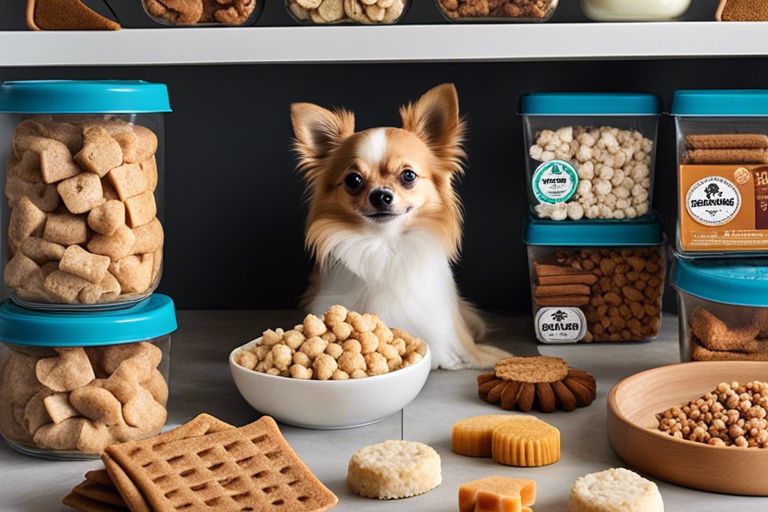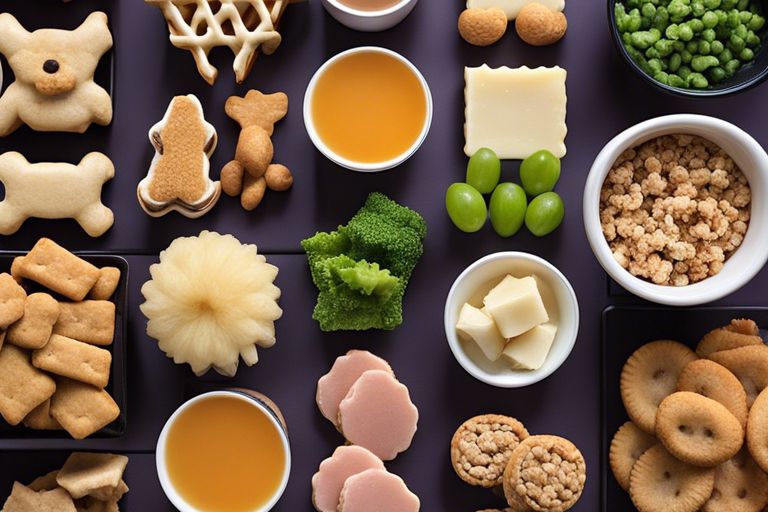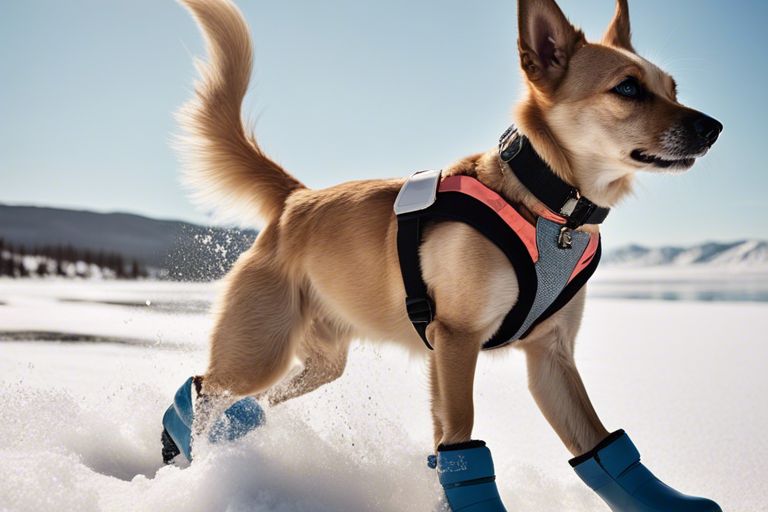As a responsible owner, it’s imperative that you select safe and appropriate treats for your small dog. Contrary to popular belief, not all treats are created equal, and many can pose serious health risks to your furry friend. When it comes to small dogs, it’s especially important to be mindful of size, ingredients, and potential health effects of the treats you choose. In this blog post, I will outline the essential criteria for selecting safe and nutritious treats for small dogs, helping you make informed decisions when it comes to rewarding your pint-sized pup.
Key Takeaways:
- Small, soft treats: Opt for small, soft treats that are easy for small dogs to chew and won’t pose a choking hazard.
- Low-calorie options: Look for treats specifically designed for small breeds to ensure they are low in calories to prevent weight gain and obesity.
- All-natural ingredients: Choose treats made with high-quality, all-natural ingredients to avoid any potential allergic reactions or digestive issues in small dogs.
Safe Treat Options for Small Dogs
While it’s important to treat your small dog, it’s equally important to ensure that the treats you give them are safe for their size. Small dogs have unique dietary needs and can be susceptible to certain health issues if not given the right treats. Here are some safe treat options that are ideal for small dogs:
Commercially Available Treats and Their Benefits
When it comes to commercially available treats for small dogs, there are a plethora of options to choose from. Look for treats that are specifically designed for small breeds, as they are often smaller in size and lower in calories, making them perfect for your tiny companion. Additionally, choose treats that are made with natural ingredients and are free from additives, preservatives, and artificial flavors. These treats can help support your dog’s dental health, provide essential nutrients, and are convenient for on-the-go rewards.
Homemade Treats and Recipe Ideas
If you prefer to have more control over the ingredients your small dog consumes, making homemade treats is a great option. Homemade treats allow you to tailor the ingredients to your dog’s specific dietary needs, and you can ensure that they’re free from any harmful additives or preservatives. Popular homemade treat options for small dogs include simple recipes such as peanut butter and banana treats, sweet potato chews, and frozen yogurt treats. Just be sure to avoid using any ingredients that are toxic to dogs, such as chocolate, raisins, or xylitol.
Unsafe Treats and Ingredients to Avoid
Clearly, not all treats are safe for small dogs. There are certain ingredients and treats that can be harmful and even toxic to your furry friend. It’s crucial to be mindful of the treats and ingredients you give to your small dog to prevent any potential harm.
Toxic Foods for Small Dogs
When it comes to toxic foods for small dogs, there are some common items that should be avoided at all costs. Grapes, raisins, chocolate, onions, garlic, and xylitol (an artificial sweetener) are all considered toxic to dogs. These items can cause serious health issues and should never be given to your small dog as a treat. Always double-check the ingredients of any treats you’re considering to ensure they do not contain these harmful substances.
Hazardous Treat Sizes and Shapes
Another important consideration is the size and shape of the treats you give to your small dog. Treats that are too large or have sharp edges can pose a choking hazard or cause injury to your dog’s mouth or esophagus. Be mindful of the size and shape of the treats you choose, and opt for smaller, softer options that are easy for your small dog to chew and swallow. Additionally, avoid giving cooked bones, as they can easily splinter and cause harm to your dog’s digestive tract.

Special Considerations for Treating Small Dogs
To ensure the safety of your small dog when giving treats, there are some special considerations to keep in mind. Small dogs have unique dietary needs and can be more sensitive to certain ingredients. When selecting treats for your small dog, it’s important to choose ones that are specifically designed for their size. I recommend checking out the article on 11 Best Dog Treats For Small Dogs for some great options that are safe and enjoyable for small breeds.
Allergy Awareness and Alternative Treats
If your small dog has food allergies or sensitivities, it’s crucial to be mindful of the ingredients in their treats. Common allergens for dogs include wheat, corn, soy, and certain proteins. When selecting treats for your small dog, avoid any ingredients that may trigger an allergic reaction. Look for alternative treats that are grain-free or made with novel protein sources, such as duck or venison. Additionally, consider making homemade treats using ingredients that you know your dog can tolerate.
Treating Small Dogs With Health Conditions
Small dogs are prone to certain health conditions, such as dental issues, obesity, and pancreatitis. When choosing treats for your small dog, it’s important to consider their overall health. Avoid high-fat and high-calorie treats that could contribute to weight gain or exacerbate existing health problems. Instead, opt for low-calorie, dental-friendly treats that can help support your small dog’s health. Additionally, speak with your veterinarian about any specific dietary restrictions or recommendations based on your dog’s individual health needs.
Responsibly Treating Your Small Dog
Unlike larger dogs, small dogs have different dietary needs and should be treated accordingly. It’s important to choose treats that are safe for their size and to be mindful of portion control and frequency. Here are some tips for responsibly treating your small dog.
Portion Control and Frequency of Treats
When it comes to treating your small dog, portion control is crucial. Their small size means they have a lower calorie requirement, so it’s important not to overdo it with treats. I recommend sticking to small, bite-sized treats specifically designed for small dogs, and limiting the number of treats to no more than 10% of your dog’s daily calorie intake. Additionally, be mindful of the frequency of treats – giving too many treats throughout the day can contribute to weight gain and other health issues.
Balancing Treats With Regular Meals
Incorporating treats into your small dog’s diet means you need to pay attention to the balance between treats and regular meals. Treats should complement your dog’s regular diet, not replace it. I recommend adjusting the portion size of your dog’s regular meals to accommodate the calories from treats, so they don’t end up overeating. This will help maintain a healthy weight and prevent digestive issues.
Conclusion
Conclusively, when it comes to choosing treats for small dogs, it is important to opt for options that are not only tasty but also safe. Treats such as small, soft, low-calorie, and easily digestible options, including freeze-dried liver, plain cooked chicken, and carrots are great choices for small dogs. Avoiding treats that are high in fat, sugar, and artificial ingredients is essential to ensure the health and well-being of your small dog. Always remember to monitor the portion sizes of treats and to consult with your veterinarian for any specific dietary recommendations for your pup. By being mindful of the treats you give, you can help keep your small dog healthy and happy!
FAQ
Q: What kind of treats are safe for small dogs?
A: When choosing treats for small dogs, it’s important to look for options that are appropriately sized, low in fat, and easy for them to chew. Stick to treats specifically designed for small breeds, and consider options like soft chews, freeze-dried meats, and dental chews that can be easily broken into smaller pieces to prevent choking hazards.
Q: Are there any treats that should be avoided for small dogs?
A: Yes, there are certain treats that should be avoided for small dogs. Avoid treats that are oversized and difficult for them to chew, as well as those that are high in fat, sugar, and artificial ingredients. Also, stay away from bones, rawhide, and other hard chews that could potentially harm your small dog’s teeth and digestive system.
Q: How can I ensure the treats I give my small dog are safe and healthy?
A: To ensure that the treats you give your small dog are safe and healthy, always read the ingredients and nutritional information on the packaging. Look for treats made with natural and wholesome ingredients and avoid those that contain fillers, by-products, and artificial additives. Additionally, consult with your veterinarian to find the best treats for your small dog’s specific dietary needs and health condition.

